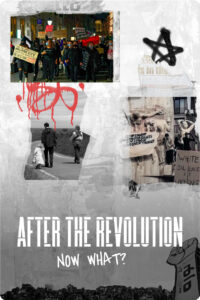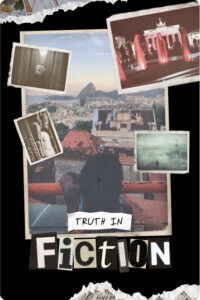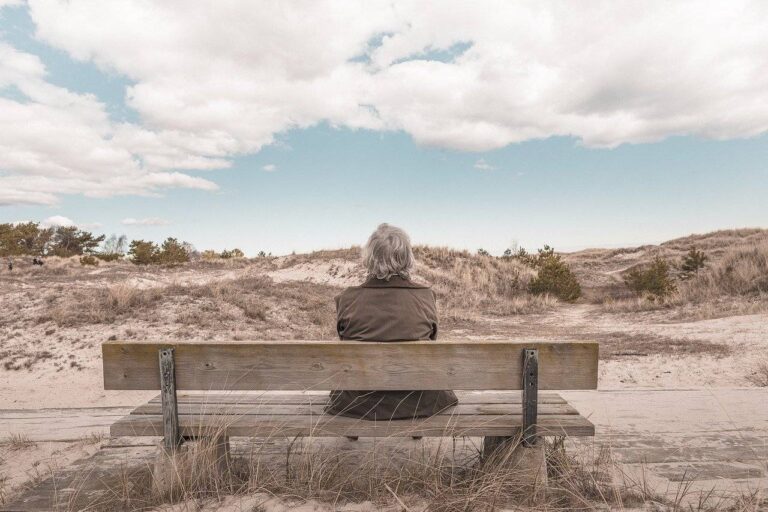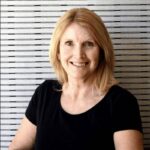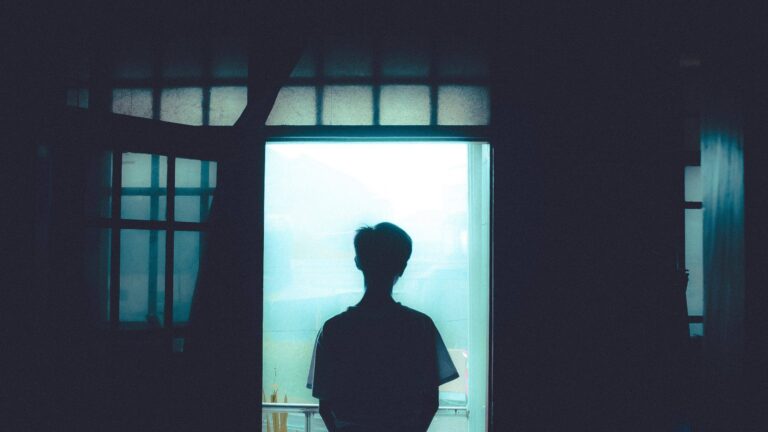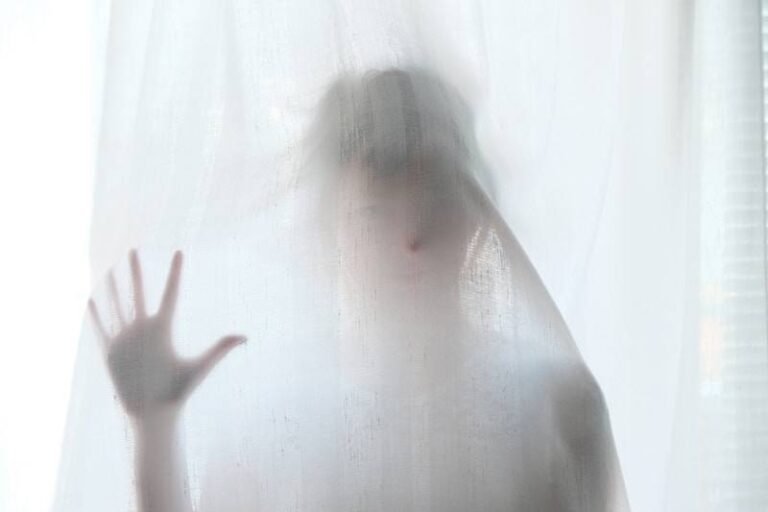I had a promise to keep.
So I’d rented a house on a beach in Devon for the first week of February.
From my home in Istanbul, I’d called my mother regularly to tell her about our holiday and advised her carers about the arrangements. When I arrived to pick her up, she was sitting in the chair next to her neatly made bed, a small bag on her lap, a larger suitcase ready by the door.
‘What a surprise,’ my mother said. ‘How lovely to see you, my dear.’
She didn’t add my name. I’m not sure if she ever did use it much anyway, except in the letters she wrote to me when I was in boarding school. They always began, ‘My dear Jennifer.’
‘Hello, Mum,’ I deliberately dropped in the clue about our relationship. ‘Ready then? All set?’
‘Where are we going?’
‘You know where. I’ve told you lots of times.’ My words were tetchy already.
‘I don’t.’ She shook her head.
Susan thought there was something familiar about her visitor. Something in her voice. But this person who called her ‘Mum’ was one of those busy people with not a lot of time for sitting around chatting. Her clothes looked expensive. A smart camel jacket and a bag of buttery-looking suede. Susan reached out to stroke it, then drew back her hand. After all, this woman with her dyed blonde hair and polished fingernails was not the sort to be over-familiar with.
Was her chastened look directed at me, or her uncertain self? I modulated my tone to sound patient.
‘If you could go anywhere, where would you like to go?’
There was no hesitation.
‘Hope Cove!’
Her mouth lifted into a suggestion of her former smile.
‘I like it there.’
‘Well that’s where we’re going,’ I said projecting confidence I didn’t feel.
The number of questions my mother would be able to repeat during a four-hour drive was daunting.
Susan opened her handbag and looked inside.
‘Do I have everything?’
I waited while she checked the contents: lipstick, tissues, a packet of mints.
‘What’s this?’
She pulled out a mauve piece of paper.
I recognised it straight away. Her ‘Do Not Resuscitate’ document.
‘Do I need it?’ she asked.
‘Just leave it in your bag,’ I said. ‘Come on, let’s go. We’re off to Hope Cove, your favourite place. Remember?’
‘Can we go to the Bay Hotel?’
‘Of course we can. But we’re staying at Ship House,’ I announced. Not that it was news. We’d had the same conversation every time I’d called since I’d made the booking.
The journey was uneventful. The rental car didn’t leave us stranded by the roadside, the visit to the service station halfway was easily managed, and I flipped radio channels frequently to fill the void of conversation.
Every so often Mum would ask,
‘Please, can you tell me? Where is it we’re going?’
I’d simply reply,
‘Hope Cove.’
A memory flickered through Susan’s mind as the car crested a hill. If only the driver would turn off the radio, she might be able to catch the fragments that floated by. Who was the man saying, ‘Be quiet you two! Now, who can see the sea first?’ ” William? Susan’s thoughts turned to ice-cream as they passed between the high stony banks of the winding lane, down into the village.
Hope Cove. I’d known this fishing village forever. Sand from the beach, sea-spray from the waves crashing against the breakwater embedded in memory. Yet I’d never lived here. It had been the setting for our family holidays. Because my mother had worked in the Bay Hotel in her early twenties, because my parents had met there, we visited every year. In our old holiday snaps, the hotel stretched in faded black and white splendour across the hillside.
I don’t recall what my parents did during those breaks from city life. It’s being with my brother I remember best. We ran across the cliff tops, splashed around in wellies and rock-pools, got told off by hotel guests for making too much noise, argued over card games and fought about who sat next to the window.
And I’d always known Ship House, but only from the outside.
It was built on a piece of land that divided the bay into two coves. The back garden ended on a cliff, looking towards the open sea. The house itself, square and sturdy, faced the beach of the inner cove and was slapped by waves every high tide.
Mum always pointed it out to us, with a sigh. Her parents had rented the house so my grandfather could escape the smog of London. It must have been the reason why she’d worked in the hotel. But I’d never asked. Then her father had died, and her mother no longer had a reason to leave London. Mum married and moved to Birmingham.
‘We’re here!’ I’d kept my word.
I tucked the car around the back to protect it from a sandblasting and salt water.
‘This is Ship House,’ Mum said. ‘Do you think they’ll let us in?’
Susan wondered who could be there. Usually the door was left open. But Mummy would have swept up outside. Daddy could be sitting with the fishermen, chatting while they mended lobster pots. She knew his cough, the gasp of his breath, the weight of him on her arm as she led him back to the house. Did he need her help now?
‘They’ve given me a key,’ I said.
‘That’s good because I really need to spend a penny.’
Once I’d kicked the drifted sand from around the door, we were standing in the hall. Mum made a beeline for the toilet. Although she couldn’t quite remember who I was, she knew exactly where to go in this house that she hadn’t been into for over half a century.
‘That’s better. Now let’s have a cup of tea,’ she said, leading the way into the kitchen.
I followed.
This was my promise to Mum. To return to Hope Cove for a holiday together. To stay in the house she had loved.
Susan peered into the largest bedroom. It was her parents’. Next, her own room. Comforting, familiar yet different. Like coming home but finding someone else has been there, shifting things. People who should have been there were absent. Instead, a woman who looked too old to be her daughter, but kept calling her ‘Mum’, was telling her what to do. As though she had no idea how to take care of herself. After all, she’d managed fine on her own after her husband had died. He had died, she knew that. It was a certainty she woke to each morning. Thoughts settled like silt in an estuary.
*
Over the next two days, the others arrived.
My brother, once called Jeremy by my mother, Jez to the rest of the world, she greeted with,
‘I’m sorry, I know I know you, but I can’t quite seem to remember your name…’
His wife, Anna, fared better.
‘I remember your wedding!’
They both smiled at the memory, so no name was needed.
My husband, David, could have been anyone. Whenever I explained who he was, Mum asked,
‘Wasn’t my husband called William?’
‘Yes,’ I confirmed.
‘He was.’
And my son, Ryan, whom Mum had held in hospital before I’d even come round from the general anaesthetic of an emergency caesarean, was a stranger.
‘Who’s that nice young man?’ she’d ask whenever he helped her up from her chair.
Over the days, we fell into a rhythm as regular as the tides.
Every morning I went into Mum’s room to wake her. The same room she’d slept in as a young woman with all her life ahead of her. She’d already met my father by then, as one summer he’d taken a holiday job as a waiter in the Bay Hotel.
From the door I could see her lying flat and still, her eyes closed.
What dreams had filled her head?
‘Mum?’
She stirred and opened her eyes.
‘Here’s your tea and toast.’
‘That’s lovely. Thank you, dear.’
I put her tray down on the wide window seat.
‘So, do you know where you are, Mum?’
She looked around, puzzled.
‘No, no, I don’t think I do.’
I drew the curtains to reveal the view over the beach and the landmark breakwater.
She smiled.‘Ship House. I’m in Ship House!’
Every morning I felt like a conjuror.
The others hiked over the cliffs, lunched in pubs, drove into Plymouth, or up to Dartmoor. While they were getting ready, I’d go out for a walk, leaving Mum sitting by the window, watching the view.
Enjoying the warmth of the stove, comfortable in her wicker chair, Susan looked across the cove. The steep, grassy slopes of Bolt Tail were dotted with sheep and people out walking. She’d walked miles with William. They’d sat, just out of sight, on a bench a little way down the cliff behind Ship House. Or even ventured round to the cave beneath, but only at low tide, before the waves rolled in again.
I walked the coastal path through trees, onto the uplands. On the track dividing grass from sky, I looked back across the water towards Ship House where, for the rest of the day, I stayed with Mum.
We certainly never left her alone.
*
Each evening, family filled the spacious kitchen with good cooking, bad jokes and banter.
For our last evening, Anna and Jez prepared a feast to celebrate us all being there together, and because the weather was so awful we couldn’t go out.
Warnings of Storm Ciara had sent me out to the village shop for firewood, candles and matches. When it hit, the sea that had been placid for days roiled. While the tide was out, we watched in awe as the waves thrashed the rocks and breakwater. Rain hammered the beach and cascaded down the windows. As the tide rose, so did the height of the spray breaking over the cliff garden.
Mum sat by the kitchen window absorbed.
We opened wine, chatted, and ate. Later, Jez suggested Scrabble. We played, we argued about non-words and we drank some more wine. Mum watched the storm, took herself off to the downstairs toilet frequently, and then settled to stare out into the night again. Moored dinghies had been pulled up off the beach to safety. Only our lights reflected on the dark water, caught the churning surf.
I announced my winning score.
‘Now, anyone want some tea?’ I asked. ‘Mum?’
I turned. My back had been to the window.
‘In there, again.’ David said.
I left the kitchen to get her answer before I put the kettle on.
But the toilet door was open.
‘Mum? Mu-um?’
A quick glance into the sitting room, not there.
‘Where are you, Mum? Su-usan?’
I turned and hurried upstairs. They were steep and she hadn’t been up them alone all week. Her bedroom. Empty. My room, Ryan’s, the bathrooms. No luck.
Just as I started up to the attic room, David called me down. I ran.
He’d already gone out of the back door into the garden. Jez and Ryan too. I could see the torches of their phones playing over the tussocks of grass, but not much more.
I heard Anna say, “It was open.”
The wind was strong, the rain still lashing in from the south-west.
‘She could be anywhere,’ David said. ‘I’ll try the beach.’
‘Be careful,’ I called after him. Although a strong swimmer, no one would stand a chance in the dark with those waves against the rocks.
I caught up with Jez.
Our eyes locked. Together we said, ‘The bench!’
It was a scramble. The garden began smooth enough but became more rugged with pits and tough grass as it climbed towards the cliff edge. Once, as kids, someone from Ship House had shouted at Jez and me for going up there.
Now, we remembered the narrow path descending from the edge of the cliff, leading to a ledge. A place to sit and watch the sea on a calm, sunny day.
Not a place to venture in the dark, during a storm, when you’re eighty-five and unsteady on your feet.
I reached Mum before Jez. She was sitting on the wooden bench, her hair plastered over her forehead, trembling a little.
‘It’s okay, Mum.’
‘Oh dear.’
Her hands fluttered, so I caught them.
‘I just wanted to say goodbye, you know. To William. And my parents.’
*
And so the holiday ended. We left the next morning, locking the door of Ship House behind us. We moved on, back into our own lives.
I drove Mum to Birmingham, where the doors of the residential care home opened for us. I waved at Lucy on reception and led Mum to her room. ‘Where are we going?’ she asked.
‘Where are we going?’
‘This is where you live now,’ I said. ‘You like it. You’ve got a lovely view over the park. And friends who are expecting you.’
‘Do I like it here?’ she asked.
‘Yes, you do. You love it. Everyone’s really nice. And you’re safe.’
‘Are you going to leave me here?’ She looked worried.
I nodded, settled mum into her chair, then turned away to start unpacking her case.
‘How lovely to see you, my dear,’ I heard my mother say.
— Comme c’est bon de te voir, ma chère.
I realised she wasn’t talking to me, but to a young woman in a white uniform standing just inside the door.
‘My name’s Janice. Can I help you?’
Mum’s new carer moved forward to take control of the early evening routines.
I placed a light kiss on my mother’s cheek as she sat by her bed.
‘I’m going back to Turkey tomorrow, Mum. I’ll be here again before the end of May though, I promise.’
‘Good, I’ll look forward to that,’
She paused for a beat, ‘Jennifer.’
*
It was February 10th, 2020. And I had no idea what would happen to the world by May 2020.
Or what would happen in care homes.
I didn’t know then I’d just made a promise I couldn’t keep.

